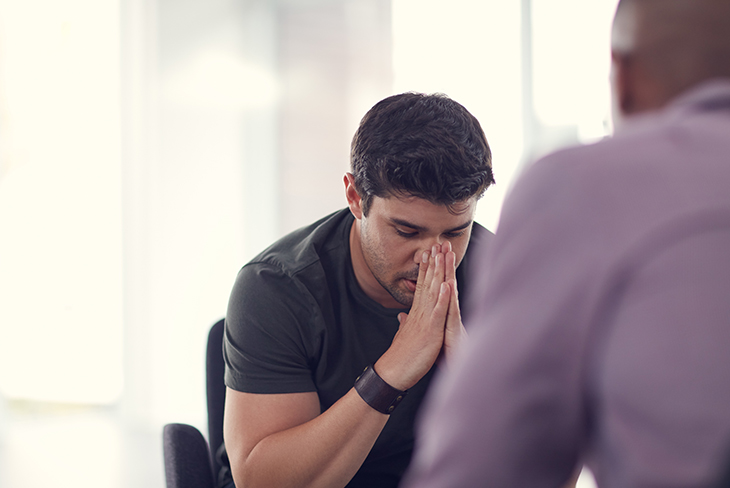Moral fatigue: Here’s why you are always tired

Daily activities have become exhausting moral dilemmas since the COVID-19 outbreak. This is what you need to know about moral fatigue to manage your mental health.
Whether you’re stopping at the mall, seeing a family member or taking public transport, visiting any public place could increase your COVID-19 risk. There’s also concern that you could unknowingly pass it on to someone else, particularly a loved one.
This constant mental tug of war could leave you exhausted and emotionally drained, which, over time, could lead to a heightened form of exhaustion called ‘moral fatigue’.
‘Our lives now involve high-stakes decision-making, which our brains must process. Moral fatigue is not something readily recognisable as we are not accustomed to considering the possibly severe consequences resulting from normally mundane errands and tasks,’ says Dr Ismail Moola, a psychiatrist at Life St Joseph’s, a Life Mental Health unit.
The health impact
Living through this time of loss and uncertainty has come with a host of other emotions, including self-doubt, anger, sadness and grief. Combine all of these and it could lead to mental health implications such as anxiety, burnout and even depression, says Dr Moola.
Furthermore, many people have reached their full capacity for dealing with this build-up of stress and fatigue. As a result, they’ve stopped being as cautious.
For these people, disregarding safety rules such as mask-wearing, social distancing and listening to health leaders has become a better option than always having to be ‘careful’.
‘Our empathy tanks are low,’ says Dr Moola. ‘A simple stopover such as the supermarket leaves us running on empty and when we constantly hear about more people becoming ill or dying, this aggravates our anxiety,’ he says.
How to cope with moral fatigue
Dr Moola suggests a ‘psychological first-aid approach’ to manage your mental health.
Lean on others
When you are feeling overwhelmed, reach out to loved ones, close colleagues and friends. Talk through any decisions you are unsure of (even a trip to the mall) to normalise your fears and doubts.
Take it slow
Anxiety can make most decisions feel urgent, but don’t overwhelm yourself with having to make too many choices at once. Allow yourself time to process any decision you’re trying to make. Writing down the pros and cons or journalling can help to bring clarity. And keep in mind that there may not be a ‘right answer’ during this time.
Practise self-care
- Exercise for at least 30 minutes per day.
- Eat healthily and include foods such as fruit, vegetables and lean meat in your diet.
- Manage your anxiety with relaxation practices such as yoga, meditation and deep breathing.
- Limit your time online, particularly your exposure to COVID-19-related news.
- Get at least eight hours of sleep each night and follow a sleeping routine.
- Focus on the things that bring you joy, including hobbies and time with your loved ones.
How can you grow from this experience?
‘COVID-19 has taught us a great deal about our interdependence and compassion. We need to find ways to acknowledge and address moral fatigue among ourselves,’ says Dr Moola.
‘Try not to complain or judge harshly how someone else is dealing with the current events as people act very differently when they are afraid instead of safe. The better we get at extending generosity in our judgments, the better we can be [at being] compassionate. Criticism and shame are not going to move us forward,’ he concludes.
If you suspect you are struggling with moral fatigue or a mental health condition, contact a mental health specialist to help you cope.
The content provided is not intended to be a substitute for professional medical advice, diagnosis or treatment and does not cover every aspect of mental health. Consult a doctor or your nearest emergency unit if you are concerned about your own or a loved one’s mental health. The information is shared on condition that readers will make their own determination, including seeking advice from a qualified healthcare professional. E&OE. Life Healthcare Group Ltd does not accept any responsibility for any loss or damage suffered by the reader as a result of the information provided.

